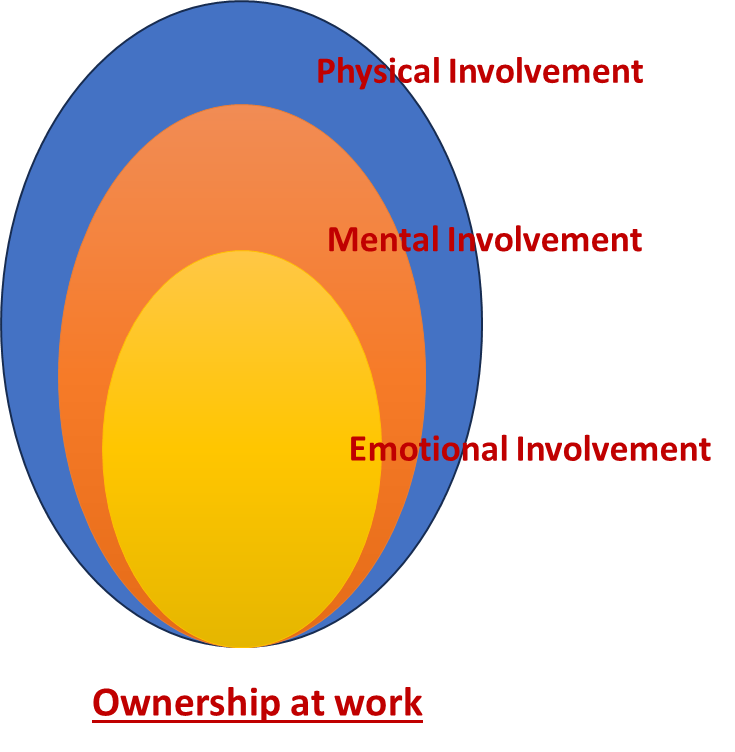Can you recognize ownership problem at work? Not coming to work, not spending enough time on assigned tasks. Careless people are easy to spot. Right? Not necessarily!
Some of my team members seems to work hard. But to get results, I have to continuously chase them. Customer keeps complaining about them. When I spoke one on one, every one of them seemed pretty good. If they are good, the results should have been better.
So, I decided to check further. Why hard work is not equating to results? There must be some reason for low productivity. My first instinct was to check if they are spending enough time at work. They do. They work pretty hard sometimes more than other team members. I already know they are smart. That’s why I hired them!
Still, there was something missing. Customers were complaining that these team members are slow. Customers said, they are incompetent and asked to remove them from the team. Customers were not getting the outcome they expected. Every other day, there was escalation.
These hardworking team members are smart and also have experience. But customers felt they are not good. Somewhere, something is wrong.
As I did deep review, I realized finally. Here is what was going wrong.
One team member, the very bright guy, totally refused to apply mind, when it comes to office work. He showed lot of intellectual laziness. When he found problems, he just reported that he is unable to progress and just waited for customer input. Customer used to be busy and would take some time to check the problem. When the customer checked the problem, the input required was usually trivial which could have been handled by team member himself. This made customer think that our team member is inefficient. Our team member could have assumed some things and taken a stop-gap decision and could have proceeded. Long cycle of improvement iterations were making the customer very upset.
Here is what saw- the member had no problem spending sufficient work hours. He was even ready for extra hours. But he did not want to spend any intellectual energy on work. His was like – just follow the instructions, as a obedient junior. If work got delayed, it just did not evoke any emotions in him.
When questioned, all he keeps mentioning is how hard he works. He blames the system or customer for delays and refuses to introspect.
This team member has hidden ownership issues.
Other team members too had similar ownership issues which lead to low productivity and customer escalations.
Let us see how ownership manifests in different levels and why it matters.
Levels of Ownership
Physical involvement: Investing time and doing work as instructed. It is easy to witness how hard anyone works.
Intellectual involvement: Putting skin in the game: Involving intellectually and staying mindful. Proposing decisions. If delays are affecting, take a temporary decision so that work does not stop. Do the course corrections later, after customer get back with confirmation or a change request.
Emotional involvement: When anyone is emotionally invested, it shows in the face and voice. It shows in sense of urgency. It shows up in body language through enthusiasm and energy on the floor. It shows up in follow ups of dependencies. It shows up in pro-active behavior. Work delays cause anxiety. It is healthy anxiety about meeting your own commitments. It is good.

If all three align, you can feel the ownership of your team member. You will feel that you can depend upon this member. It is priceless.
If you feel something is not right about a team member, check these aspects of ownership.
If you are a team member who keep getting feedback on ownership, introspect on your level of ownership. You may have blind spot in recognizing the pieces of ownership issues.
